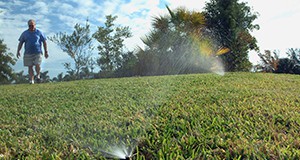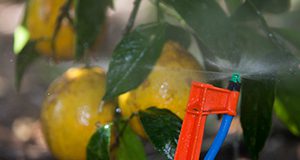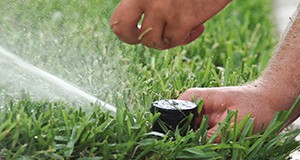This is the fourth publication in a series focused on improving and encouraging water conservation among Florida residents who use irrigation in their home landscape. This four-page fact sheet examines the impact of differently framed messages on Florida residents’ attitudes toward good irrigation practices and their perceived ability to implement those practices. Written by Joy Rumble, Laura A. Warner, Courtney Owens, Alexa Lamm, and Randall Cantrell and published by the Department of Agricultural Education and Communication.
http://edis.ifas.ufl.edu/wc202
Tag: Courtney T. Owens
Differences in Perceptions of Agricultural Water Use between the General Public and Local Officials
Due to the scarcity of water resources among states and the influx of people, balancing agriculture and public water needs has become a contentious issue. Therefore, dialogue msut take place to educate and inform the general public and local officials about the reality of agricultural water use. This is the second article in a series describing the differences in perceptions of agricultural water use in Florida between the general public and local officials. This four-page fact sheet identifies the differens among groups for agricultural water use and provides ways to change Extension programming according to these differences. Written by Courtney T. Owens, Alexa J. Lamm, and Ricky W. Telg and published by the Department of Agricultural Education and Communication.
http://edis.ifas.ufl.edu/wc249
Attitudes and Perceptions of Agricultural Water Use in Florida Expressed by the General Public and Local Officials
The use of water has become increasingly contentious because an increased population is sharing a decreasing amount of water. Water remains Florida’s most plentiful natural resource but is at risk as the agriculture industry and Floridians demand more water for a variety of uses. This four-page fact sheet discusses the media’s influence on perceptions of agricultural water use, the measurement of attitudes and perception towards agricultural water use, and ways to educate the general public and local officials on this issue. Written by Courtney T. Owens, Alexa J. Lamm, and Ricky W. Telg, and published by the Department of Agricultural Education and Communication.
http://edis.ifas.ufl.edu/wc248
How the General Public and Local Officials Prefer to Learn about Agricultural Water Use in Florida
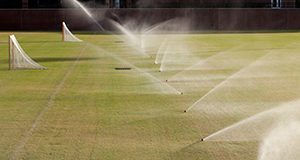
Water is a precious resource that is invaluable to the state of Florida. The amount of water being used daily in the state is estimated at 14.3 million gallons. Part of a series dedicated to describing the preferred ways of learning about agricultural water use in Florida, this study can be used to assist Extension educators and the agricultural industry at large in the development of strategies meant to inform people about the realities of water use. This three-page fact sheet helps Extension educators understand preferred learning mediums so they can provide useful information about agricultural water use. Written by Courtney T. Owens, Alexa J. Lamm, and Ricky W. Telg and published by the Agricultural Education and Communication Department.
http://edis.ifas.ufl.edu/wc247
Encouraging Landscape Water-Conservation Behaviors #3: Developing Extension and Outreach Messages That Encourage Landscape Water Conservation Practice Adoption
Message framing can be an effective tool for crafting messages for a target audience. This 5-page fact sheet explains how Extension can use gain and loss message framing to encourage Florida residents who irrigate their home landscape to adopt water-conservation practices. Part three of the series Encouraging Landscape Water-Conservation Behaviors and written by Courtney Owens, Laura Warner, Joy Rumble, Alexa Lamm, and Randall Cantrell, and published by the UF Department of Agricultural Education and Communication, June 2015.
http://edis.ifas.ufl.edu/wc201
Encouraging Landscape Water-Conservation Behaviors: Information Seeking Preferences of Florida Residents Who Use Irrigation in the Home Landscape
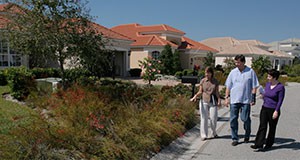 How can we encourage Florida residents who irrigate their home landscapes to adopt environmentally responsible irrigation practices? Provide them information they are interested in and deliver it through their preferred information channels. This 4-page fact sheet discusses the topics of interest to this audience and how they prefer to receive information about water-conservation practices related to their home landscaping, and makes recommendations for reaching this audience. Written by Courtney Owens, Laura Warner, Joy Rumble, Alexa Lamm, Emmett Martin, Randall Cantrell, and published by the UF Department of Agricultural Education and Communication, April 2015. (UF/IFAS Photo by Thomas Wright)
How can we encourage Florida residents who irrigate their home landscapes to adopt environmentally responsible irrigation practices? Provide them information they are interested in and deliver it through their preferred information channels. This 4-page fact sheet discusses the topics of interest to this audience and how they prefer to receive information about water-conservation practices related to their home landscaping, and makes recommendations for reaching this audience. Written by Courtney Owens, Laura Warner, Joy Rumble, Alexa Lamm, Emmett Martin, Randall Cantrell, and published by the UF Department of Agricultural Education and Communication, April 2015. (UF/IFAS Photo by Thomas Wright)
http://edis.ifas.ufl.edu/wc204
How Problems Gain Speed and Become Contentious Issues Through Agenda Setting
 A significant number of problems, like poverty, crime, and lack of resources, face people in the world today. This 4-page fact sheet discusses how a problem draws political attention through agenda setting and becomes a public issue, discusses the role the media plays in agenda setting, and provides a brief commentary on the influence of interest groups on public issues. Written by Courtney T. Owens and Alexa J. Lamm, and published by the UF Department of Agricultural Education and Communication, December 2014. (Photo: iStock/Thinkstock)
A significant number of problems, like poverty, crime, and lack of resources, face people in the world today. This 4-page fact sheet discusses how a problem draws political attention through agenda setting and becomes a public issue, discusses the role the media plays in agenda setting, and provides a brief commentary on the influence of interest groups on public issues. Written by Courtney T. Owens and Alexa J. Lamm, and published by the UF Department of Agricultural Education and Communication, December 2014. (Photo: iStock/Thinkstock)
http://edis.ifas.ufl.edu/wc177
